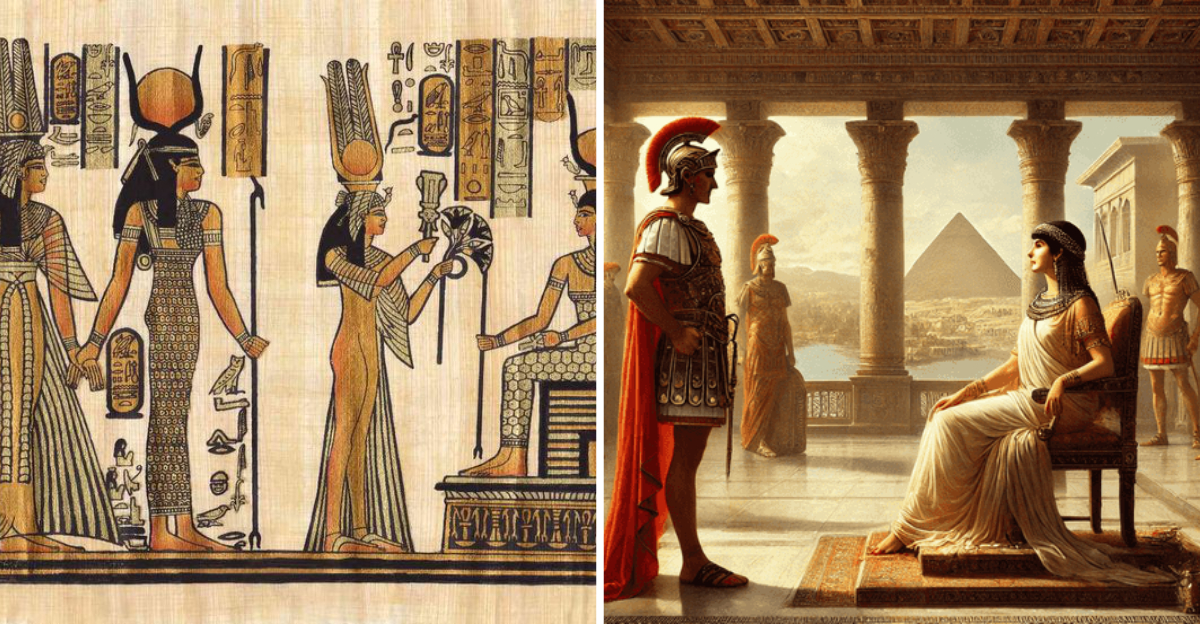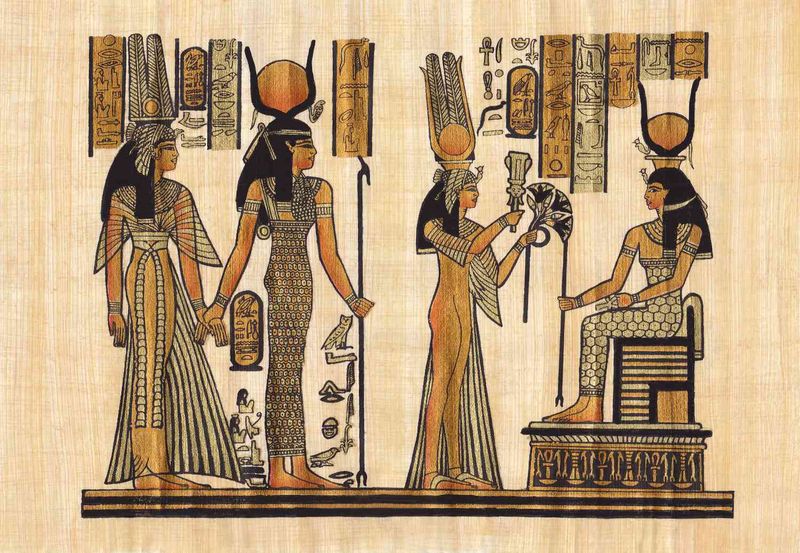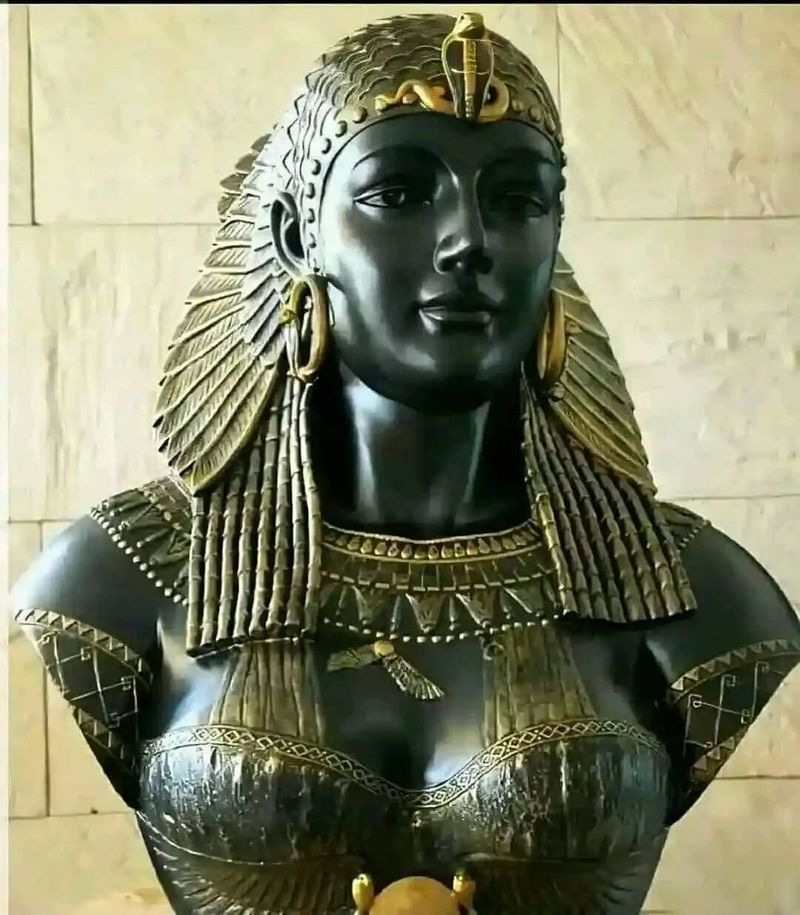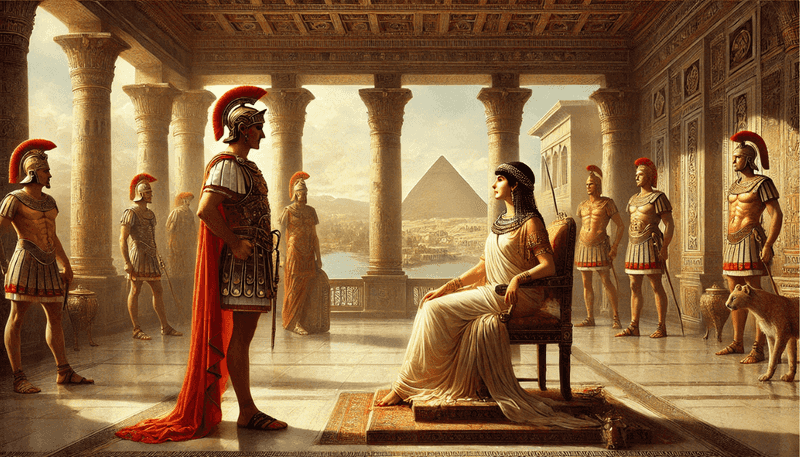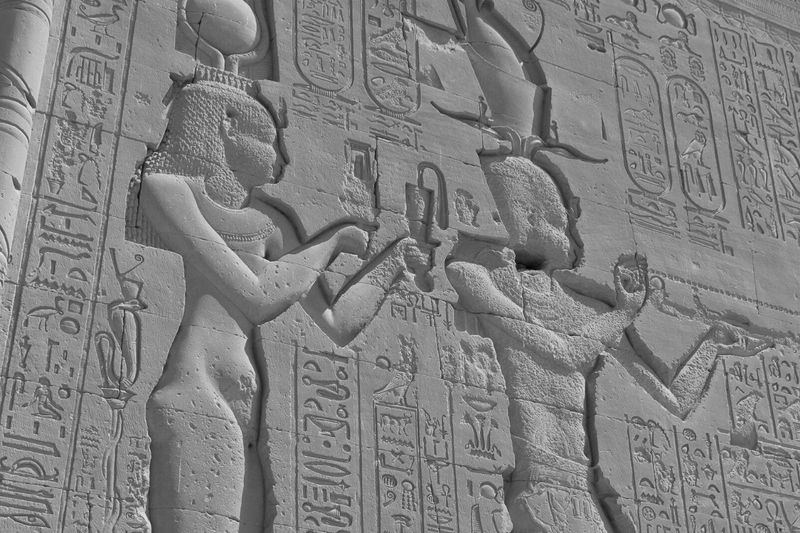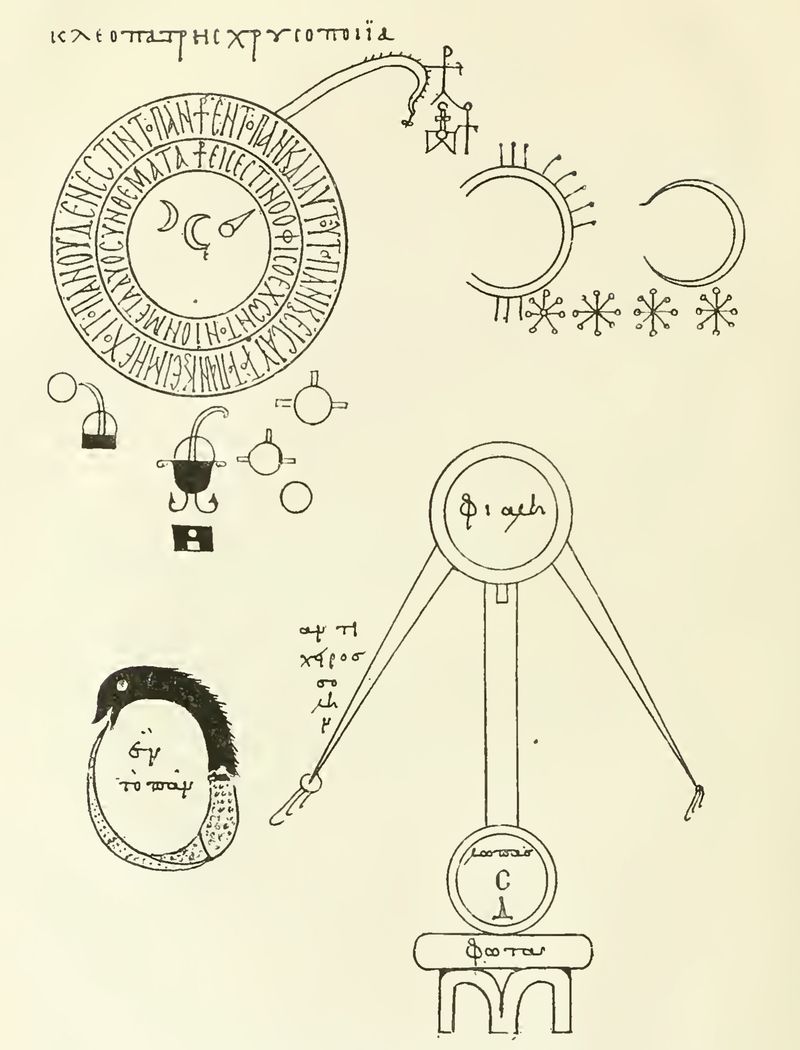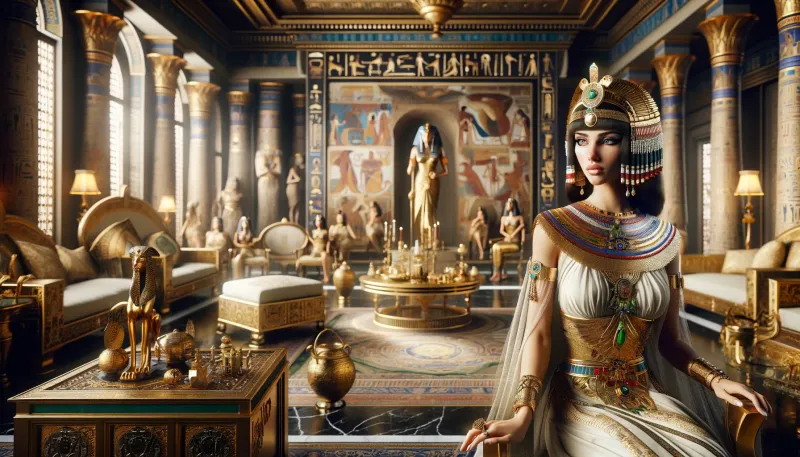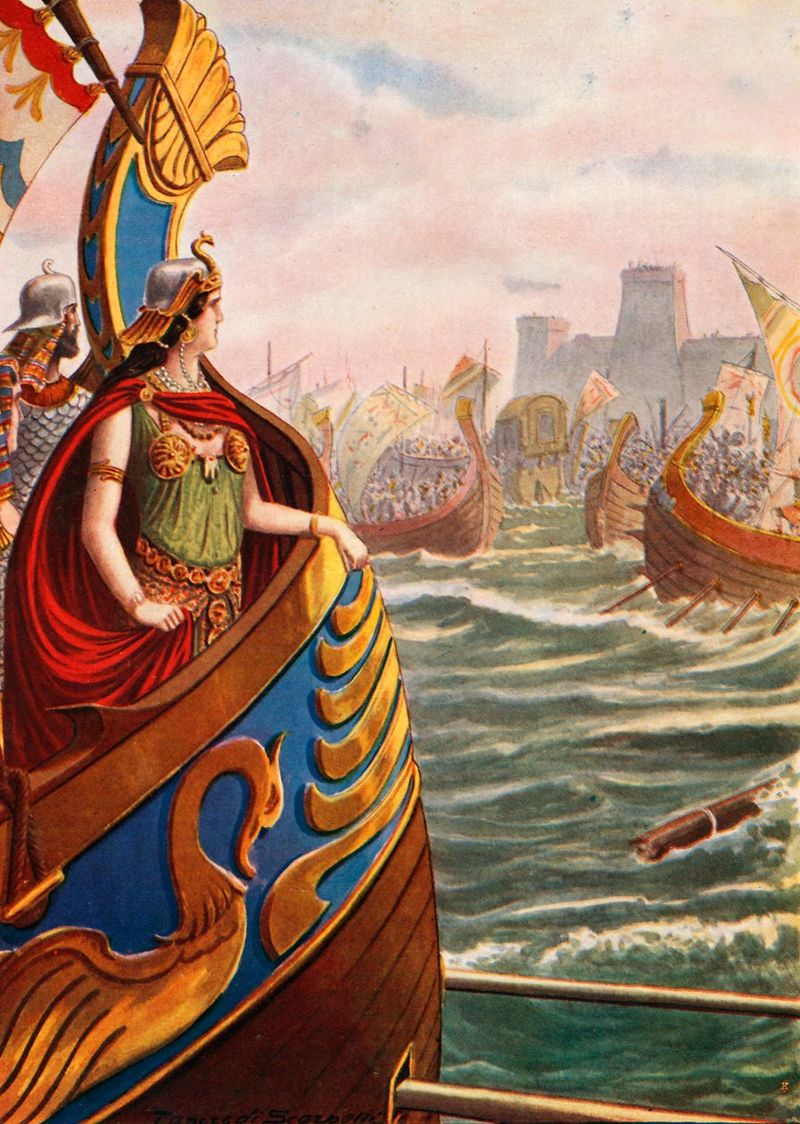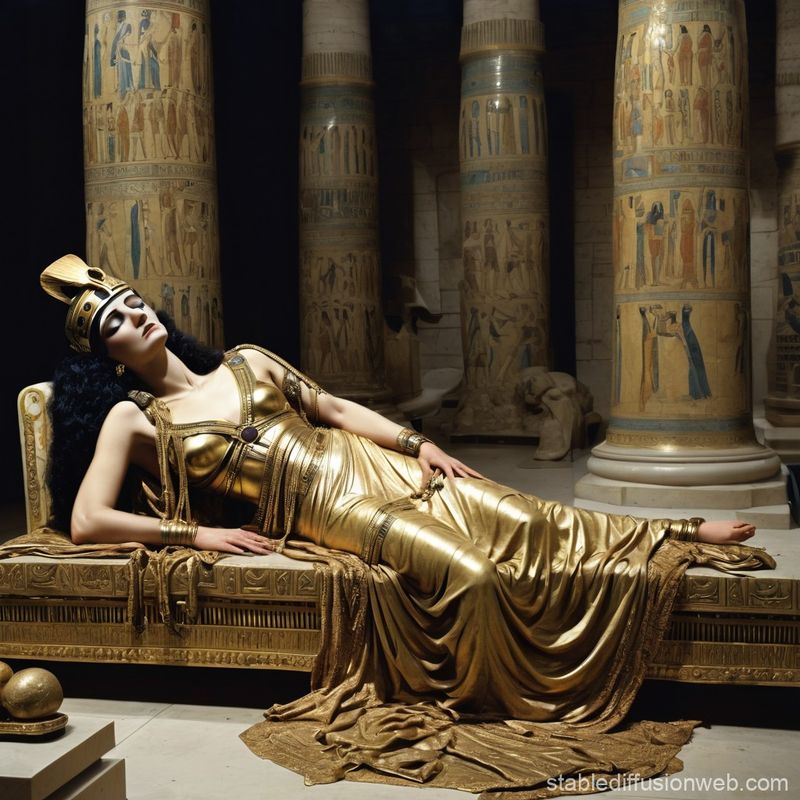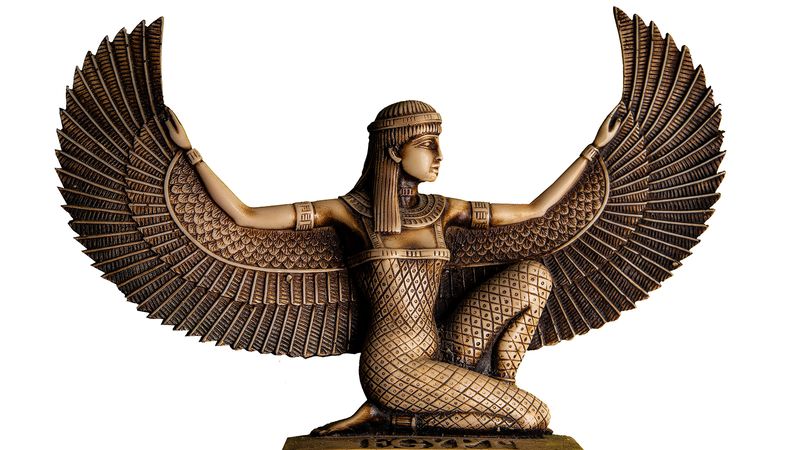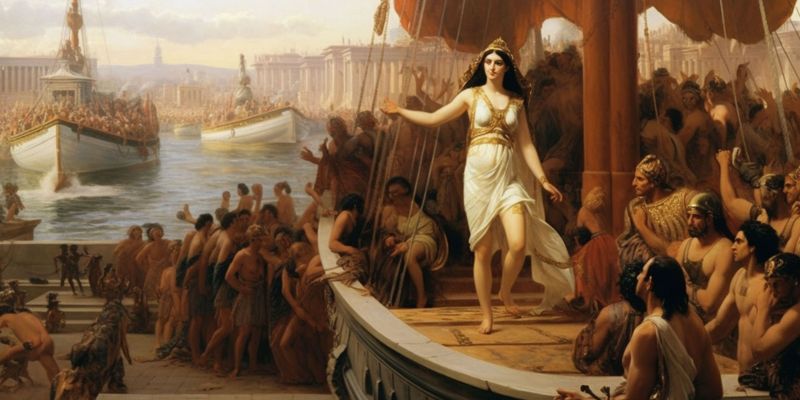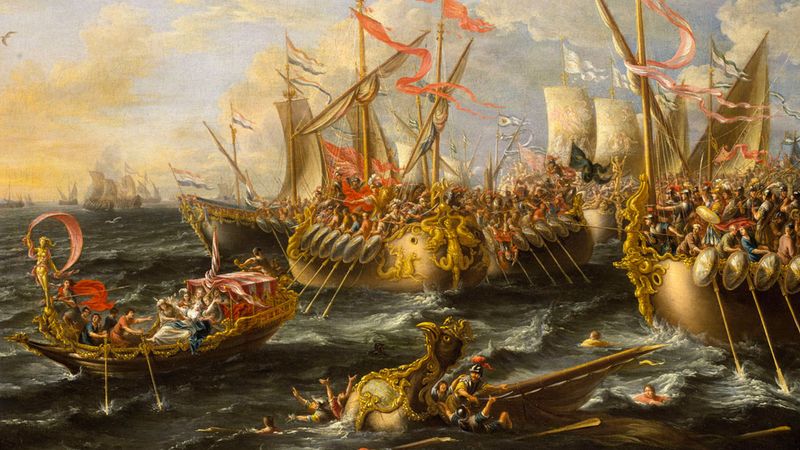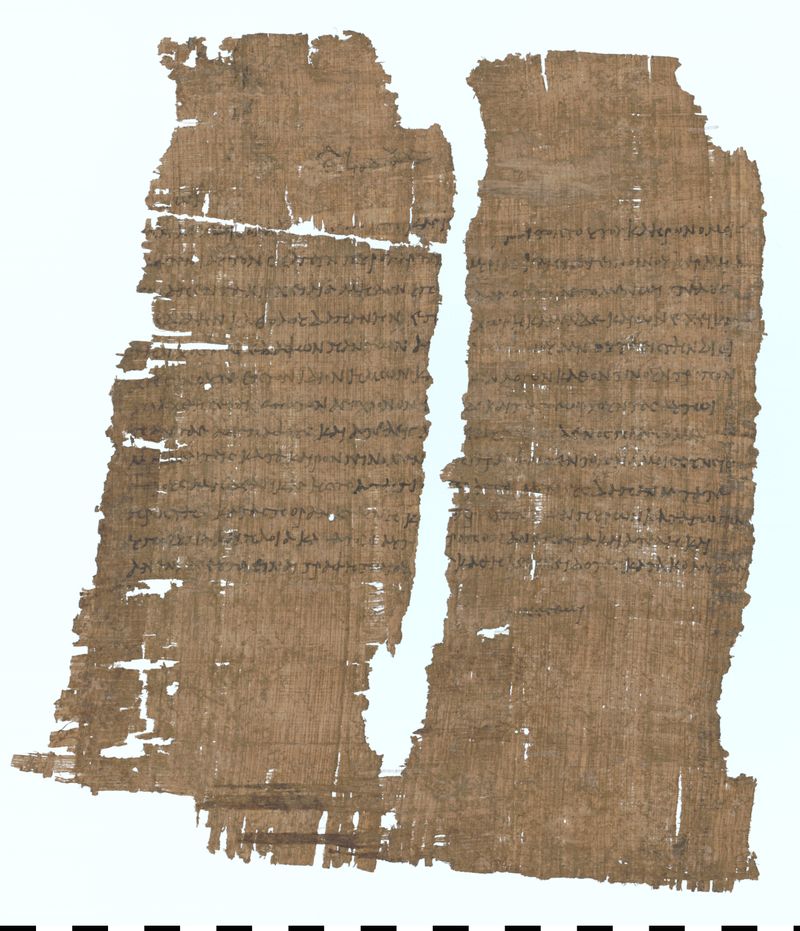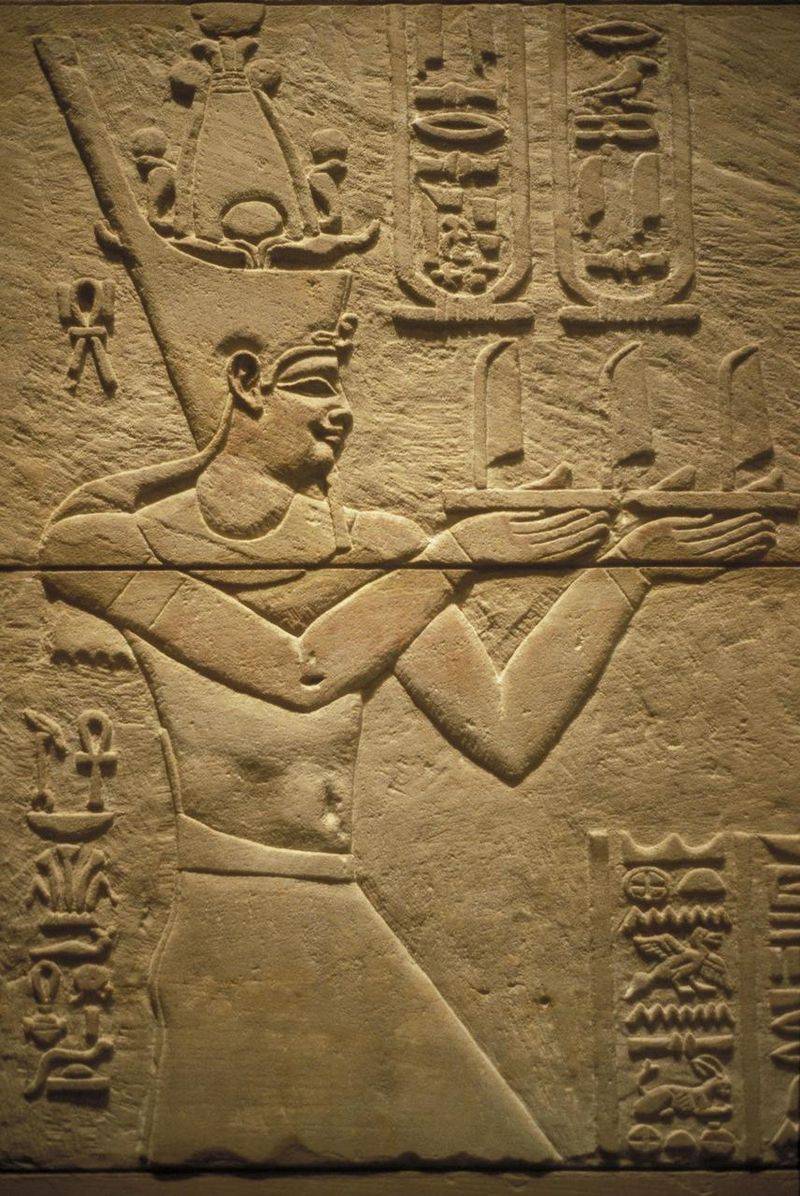Cleopatra, the enigmatic Queen of Egypt, continues to captivate historians and enthusiasts alike. Renowned for her intelligence, beauty, and political acumen, Cleopatra’s life was filled with intrigue and drama. This blog post uncovers 15 fascinating facts about her, shedding light on her reign, relationships, and legacy.
Cleopatra’s Lineage
Cleopatra VII was born into the Ptolemaic dynasty, a Greek ruling family that took control of Egypt after Alexander the Great’s death. Despite her Greek ancestry, Cleopatra embraced Egyptian culture, even learning the language. This unique blend of cultural influences made her a beloved figure among her people. Her ability to speak both Greek and Egyptian set her apart from her predecessors, showcasing her dedication to the throne and her subjects. Cleopatra’s lineage played a crucial role in her political maneuvers, as she sought alliances through marriage and diplomacy to secure her reign.
Polyglot Queen
Cleopatra was a renowned polyglot, speaking multiple languages, including Greek, Egyptian, Latin, and several others. Her linguistic skills allowed her to communicate directly with various dignitaries and foreign leaders without the need for interpreters. This ability was particularly advantageous in her diplomatic endeavors, as it helped her forge alliances and negotiate treaties. Her intelligence and eloquence impressed many, making her a formidable figure in international politics. Cleopatra’s command over languages not only aided her politically but also deepened her connection with her diverse subjects.
Relationship with Julius Caesar
Cleopatra’s relationship with Julius Caesar was both personal and political. Meeting in 48 BC, Cleopatra became Caesar’s lover, securing her position as Queen. Their union was strategic, providing Cleopatra with Roman protection and influence. Together, they had a son, Ptolemy XV, known as Caesarion. While their relationship was controversial, it strengthened Cleopatra’s power in Egypt. Her alliance with Caesar also boosted her prestige, although it was met with suspicion by some in Rome. Cleopatra’s clever use of this relationship demonstrated her diplomatic acumen, ensuring her legacy as a shrewd political leader.
Her Reign as Pharaoh
Cleopatra’s reign as Pharaoh was marked by efforts to restore Egypt’s former glory. She focused on strengthening the economy through trade and building alliances with powerful leaders. Cleopatra implemented reforms to stabilize the currency and promote agriculture, which boosted Egypt’s prosperity. Her leadership was characterized by intelligence and ambition, earning her the respect of her subjects. Despite the challenges of ruling a nation caught between Roman interests and Egyptian autonomy, Cleopatra’s reign is remembered as a time of cultural revival and political strategy. Her commitment to Egypt’s success left a lasting impact on history.
Cleopatra’s Intellectual Pursuits
Cleopatra was not only a political leader but also a patron of the arts and sciences. She supported intellectual pursuits, inviting scholars to her court and fostering a culture of learning. Her interest in philosophy, mathematics, and medicine was well-documented, and she often engaged in discussions with leading thinkers of her time. Cleopatra’s dedication to knowledge reflected her belief in its power to strengthen her reign and benefit her people. Her court became a hub of cultural and intellectual exchange, contributing to the rich legacy of ancient Egyptian scholarship. Cleopatra’s passion for learning remains an integral part of her identity.
Romance with Mark Antony
Cleopatra’s romance with Mark Antony was legendary, marked by passion and political alliance. Meeting in 41 BC, their relationship was both a personal union and a strategic partnership. Together, they sought to challenge Rome’s power, uniting their forces against Octavian. Their love story, filled with opulence and drama, became iconic in history. Cleopatra and Antony had three children, further intertwining their fates. Despite their eventual defeat, their romance symbolized resistance and ambition. Cleopatra’s ability to captivate Antony highlighted her charm and influence, making their partnership one of history’s most talked-about alliances.
The Battle of Actium
The Battle of Actium was a decisive conflict that marked the downfall of Cleopatra and Mark Antony. Fought in 31 BC, this naval engagement pitted their combined forces against Octavian’s fleet. Cleopatra’s presence at the battle was significant, as she commanded part of the fleet herself. Despite their efforts, Antony and Cleopatra faced a crushing defeat, leading to their eventual retreat. The battle’s outcome marked the end of the Ptolemaic rule in Egypt and the rise of the Roman Empire. Cleopatra’s involvement in this critical moment underscores her active role in military and political affairs.
Cleopatra’s Death
Cleopatra’s death in 30 BC is shrouded in mystery and intrigue. Facing defeat and capture by Octavian, she chose to end her life, avoiding the humiliation of being paraded in Rome. Traditionally believed to have died by the bite of an asp, her death was both a personal tragedy and a political statement. Cleopatra’s passing marked the end of an era, as Egypt became a Roman province. Her determination to control her fate, even in death, highlights her strength and resolve. Cleopatra’s dramatic end has inspired countless stories, cementing her legacy as a powerful and enigmatic figure.
Cleopatra’s Influence on Fashion
Cleopatra’s influence extended beyond politics to the realms of fashion and beauty. Known for her striking appearance, she set trends with her elaborate hairstyles and luxurious clothing. Her use of cosmetics, including kohl eyeliner and vivid eye shadows, became iconic, influencing beauty standards both in Egypt and Rome. Cleopatra’s fashion choices were not merely for vanity; they were a tool of power, projecting her status and charisma. Her style has had a lasting impact, with many modern representations of Egyptian fashion tracing back to her influence. Cleopatra’s ability to captivate with her elegance remains a testament to her enduring appeal.
The Alexandria Lighthouse
The Lighthouse of Alexandria, one of the Seven Wonders of the Ancient World, stood as a symbol of Egyptian ingenuity during Cleopatra’s reign. Though she did not build it, Cleopatra took pride in the lighthouse as a testament to her kingdom’s architectural prowess. Serving as a beacon for sailors, it played a crucial role in trade and navigation. Cleopatra’s admiration for the lighthouse reflected her appreciation for innovation and engineering. The structure’s grandeur mirrored her ambitions for Egypt’s prominence. The lighthouse remains an iconic symbol of ancient Egypt’s achievements, closely associated with Cleopatra’s legacy.
The Role of Religion
Religion played a significant role in Cleopatra’s reign, as she often aligned herself with the goddess Isis. By presenting herself as a living goddess, Cleopatra strengthened her divine right to rule and connected with her subjects on a spiritual level. Her participation in religious ceremonies and her portrayal in divine iconography reinforced her authority and legitimacy. Cleopatra’s identification with Isis also emphasized her nurturing qualities, appealing to the Egyptian populace. Her strategic use of religion was a powerful tool in maintaining her rule, illustrating her understanding of its impact on socio-political dynamics.
Cleopatra in Roman Politics
Cleopatra’s involvement in Roman politics was both strategic and controversial. Her relationships with Julius Caesar and Mark Antony placed her at the heart of Roman affairs. Through these alliances, she sought to protect Egypt’s interests and expand her influence. Cleopatra’s presence in Rome, along with her son Caesarion, symbolized her ambitions and her ability to navigate complex political landscapes. Her influence in Roman politics made her a formidable player, often feared and admired by her contemporaries. Cleopatra’s political acumen allowed her to hold sway in one of history’s most powerful empires, underscoring her legacy as a masterful diplomat.
The Construction of Her Fleet
Cleopatra’s naval fleet was a testament to her strategic foresight and military ambition. Understanding the importance of naval power, she invested in building a formidable fleet, enhancing Egypt’s maritime capabilities. Her fleet played a crucial role in various military campaigns, including the infamous Battle of Actium. Cleopatra’s direct involvement in the fleet’s construction highlighted her leadership and attention to detail. Her investment in naval strength underscored her commitment to protecting Egypt’s interests and asserting its power on the Mediterranean stage. Cleopatra’s efforts in building her fleet remain a key aspect of her multifaceted reign.
Cleopatra’s Economic Policies
Cleopatra’s economic policies were vital in maintaining Egypt’s prosperity and stability. She implemented reforms to boost agriculture, stabilize the currency, and foster trade relations. Cleopatra’s emphasis on economic growth strengthened Egypt’s position as a major power in the Mediterranean. Her policies focused on maximizing resources and optimizing trade routes, reflecting her strategic mind. Cleopatra’s economic acumen ensured a flourishing economy that supported her ambitious projects and political goals. Her ability to navigate economic challenges showcased her understanding of governance and her dedication to her country’s success. Cleopatra’s economic strategies contributed significantly to her enduring legacy.
Legacy and Cultural Impact
Cleopatra’s legacy extends beyond her political and romantic endeavors. Her impact on culture, fashion, and art has resonated through the centuries. As one of the most famous figures of the ancient world, Cleopatra has been immortalized in literature, film, and art. Her story continues to inspire and captivate audiences, reflecting her enduring allure. Cleopatra’s life and reign symbolize the complexities of power, identity, and legacy. Her ability to navigate and influence multiple realms ensures her place in history as a dynamic and multifaceted leader. Cleopatra’s cultural impact remains a testament to her extraordinary life.
